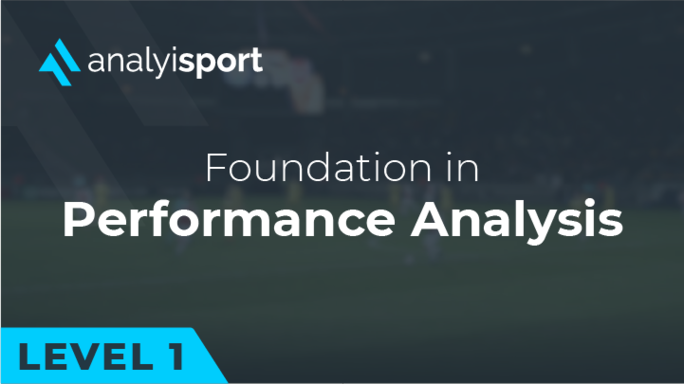What is the Oceania Football Confederation (OFC)?
The Oceania Football Confederation (OFC) represents footballing associations within the continent of Oceania. There are six continental federations within the Fédération Internationale de Football Association (FIFA). The OFC is responsible for promoting the game within the continent of Oceania, and enables the member nations to qualify for the FIFA World Cup.
The OFC is the smallest of all the confederations made up of just 13 members, 11 of which are full members. The other two, Kiribati and Tuvalu, are not affiliated with FIFA, making them ineligible to qualify to play in the FIFA World Cup.
The OFC covers a broad geographical scope. It is made up of largely island nations and territories, including the French territory, New Caledonia. New Zealand, Papua New Guinea and Fiji have been part of the confederation since its inception and now, Tonga, Samoa, Cook Islands and North Mariana Islands are also under the umbrella of the OFC.
Perhaps most surprisingly, one of the founder members left less than ten years after its inception. The largest OFC member nation, both in terms of land mass and footballing success, is no longer part of the OFC. Australia left to join the Asian Football Confederation (AFC) in 2006.
Read on as we explore the history of the Oceania Football Confederation, its role in international football and its significance on the sporting landscape.
Historical Background and Formation: How the Oceania Football Confederation (OFC) started.
In 1964, Australia and New Zealand initiated steps to set up the Oceania Football Confederation (OFC).
Sir Stanley Rous (FIFA President), Jim Bayutti (Australian Soccer Federation) and Sid Guppy (Chairman of New Zealand Football Association), began to put together plans to join FIFA. The reason behind the bid, an effort to end the sense of footballing isolation felt by Australia and New Zealand, and also to gain some geopolitical recognition from FIFA.
Australia had tried and failed to gain entry into the Asian Football Confederation (AFC) more than ten years previous and had consequently found themselves lingering in footballing limbo in terms of entry to world tournaments. Keen to become more involved in international football, NZFA approached Charles Dempsy who worked alongside Jim Bayutti to bring their hopes and dreams to reality.
Two years later, after significant lobbying, (FIFA), approved the proposal. The OFC, the last confederation to join FIFA, was born. It started with four founder members, Australia, New Zealand, Fiji and Papua New Guinea. New Caledonia became a provisional member at that time as it did not have any sports autonomy from France, despite being located in the Pacific.
The OFC was regarded as an independent geographical entity that would recognise and represent the interests of football in the Oceanic regions and propel the continent forward.
It took another 30 years for the OFC to be recognised as a full confederation and take its seat on the FIFA executive. In 1996, riding on the wave of this development, the OFC redesigned its logo and launched a new magazine.
Oceania Football Confederation Competitions
The OFC currently participates in the following competitions:
- OFC Nations Cup
- OFC Men’s Olympic Qualifying Tournament
- OFC U-20 Championship
- OFC U-17 Championship
- OFC Futsal Championship
- OFC Youth Futsal Tournament
- OFC Beach Soccer Championship
OFC Nations Cup
Ever since 1996, the OFC nations have played for the OFC Nations Cup. This is held on a bi-annual basis. In 2008, the Nations Cup acted as qualification for the 2009 FIFA Confederations Cup and the 2010 FIFA World Cup. This Cup garners very little interest from the rest of the world. Perhaps because, until Australia left in 2006, it had only ever been won by Australia and New Zealand. In 2012 it was won by one of the other nations, Tahiti.
World Cup Qualification
Until recently, the OFC was the only group not guaranteed a team in the FIFA World Cup. Eight of the countries are split into two groups, playing a round-robin tournament. The two winners play the two runners up to determine the OFC winner. However, for the 2026 FIFA World Cup, changes have been made that ensure OFC a primary and secondary slot at the tournament via the Play-Off Tournament. These two places will be determined in 2025, a year before the 2026 World Cup.
Youth Development
In much the same way, the U-17 and U-20 OFC Men’s teams have gained direct entry into the 2026 World Cup. At present, because the island nations are small, they have less footballing talent to secure their place in the World Cup. Add this to the fact that the populations are smaller and football does not hold quite the same weight as in other parts of the world, the OFC is supported in their entry by FIFA.
At this moment in time, development of OFC teams is top priority. Thus ensuring their 2019 – 2026 OFC Footballing Development Strategy:
- To leave a legacy
- Competitive member associations at OFC competitions
- Competitive OFC teams at FIFA World Cups.
The 2019 Footballing Development Strategy encompasses not just footballling competition within the OFC and world football, its aim is to support Youth, Men’s and Women’s football throughout member associations.
Challenges and Successes
The OFC is the only confederation that has not won at least one international title. New Zealand qualified in 1982 and 2010. And, before they left, Australia qualified in 1974, 2006 and 2014.
Over the years, OFC has also been under pressure to dissolve completely and transfer its members to the Asian Football Confederation. This reached its peak in 2003 when FIFA reversed its decision to provide the OFC with an automatic place at the World Cup. Many feeling at the time that the OFC would be better served, indeed more powerful, if united with the Asian Confederation.
Many have blamed the OFC for the lack of Australia’s World Cup participation. In the same way, they were blamed for their decision to abandon the OFC for the AFC. Australia felt that potentially increasing their chances of playing World Cup football and give their league players more opportunities within the AFC Champions League. Thus improving player standards at both a national and international level.
Member Nations and Significance
The OFC is the smallest of all the FIFA confederations. The 13 member associations are made up of many small, island nations. In these countries, football is not the prevailing sport. Cricket and Rugby are the predominant sports in these locations. This has implications on the OFC’s ability to attract spectators and players.
However, the OFC President is also the FIFA Vice President. David Chung throws is a big hitter in world football. His endorsement of the bid by America, Canada and Mexico to host the 2026 World Cup was significant, demonstrating his influence.
So, whilst it is widely agreed that the OFC does not have an abundance of quality players, or an army of devoted fans, it does have a driving force to uplift both interest and skill levels – in the form of its President.
It’s also worth pointing out the challenges posed by the geographical location of its members. The island nations situated in the outer reaches of the pacific ocean incur huge travel and logistical issues that do not hinder football fans in other areas of the world.
And yet, member nations of the OFC are determined to raise the profile of football within the pacific regions. Its 2019 Footballing Development Strategy has three specific goals that will be delivered over 5 years. Each goal will be delivered by:
- fostering a passion for football
- enhancing social and cultural awareness
- promoting education through football
- inspiring continuous development
- organising tailor-made activities
- providing a pathway for all.
Each of these strategies are aimed at increasing the passion for spectating, participation and the development of talent within the sport. Perhaps what the OFC lacks today, it will develop over the coming five years.
It’s clear that the Oceania Football Confederation has fought hard to compete within world football, and that it nurtures a burning desire to prove itself on the world stage. Its history proves that despite being the underdog in many respects, the OFC itself believes it has what it takes to lift the Jules Rimet trophy and bring the World Cup home to Oceania.
Related Courses:

- Level 1
- Course
Level 1: Foundation in Recruitment Analysis in Football
£70.00
Share this article
Our Learning Pathways
AnalyiSport is for everyone who is passionate about analysis in football. Where are you in your development journey?
Become a Football Scout
As more clubs than ever look to build data into their recruitment process, an understanding of recruitment analysis is your ticket to success in the game.
Related Articles
Our team provides news and insights from the cutting edge of football analysis.






